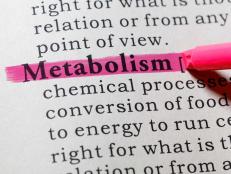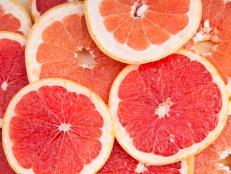11 Important Minerals Your Body Needs and How to Eat More of Them
Learn how to find important minerals like iron, sodium and potassium in food.
Related To:
Photo By: Getty Images
Photo By: Getty Images
Photo By: Getty Images
Photo By: Getty Images
Photo By: Getty Images
Photo By: Getty Images
Photo By: Getty Images
Photo By: Getty Images
Photo By: Getty Images
Photo By: Getty Images
Photo By: Getty Images
Photo By: Getty Images
Important Minerals and What They Do
Like vitamins, minerals are essential nutrients responsible for various functions throughout the body. As a group, minerals do a lot of work to help maintain body structure and cellular function. Here's your easy reference guide to important minerals, including what they do and where to find them in food.
Iron
Iron has many important jobs: It is vital for growth and development and allows red blood cells to oxygenate throughout the body. Iron is found in red meat, dark meat poultry, seafood, beans, nuts, dried foods and fortified cereals. Consider adding more of these foods to your meals to incorporate more iron into your diet.
Sodium
Sodium is necessary for proper muscle function and fluid balance, however, most Americans tend to eat too much sodium that it can sometimes be harmful. The body requires 1500mg of sodium a day, and the limit set for food labels is 2300mg a day. A diet heavy in ready-to-eat meals and take-out foods can skyrocket sodium intake. Healthier sources of sodium include canned beans and other canned vegetables, as well as salted nuts, whole grain products like crackers and bread, and lean deli meats like turkey or chicken breast.
Potassium
Yes, you can find this electrolyte in bananas (they get all the glory), but it is also found plentifully in other plant-based foods like oranges, potatoes, dried apricots, legumes as well as milk, yogurt, chicken and salmon. Your body relies on potassium for several things, including muscle function, cellular integrity and proper heart function.
Magnesium
This mineral is getting more attention lately — it’s best known for its role in helping to maintain proper muscle and nerve function, as well as protein synthesis and proper regulation of blood sugar and blood pressure. Pumpkin seeds rank high on the list of magnesium-rich foods along with chia seeds, nuts, dairy and brown rice and peanut butter. There is also some in chocolate (hooray!).
Selenium
Did you know this mineral also acts as a cell-protecting anti-oxidant? It is also involved in thyroid function for proper metabolism, plus it helps form DNA. Look for selenium-rich foods like meat, dairy and grains. One of the most impressive sources of selenium are Brazil nuts: one ounce contains nearly 800% of the daily recommendation.
Zinc
Touted for the ability to impact immunity, zinc is also involved in wound healing, DNA and protein synthesis, proper growth and the sense of taste and smell. Zinc is found in a variety of foods including beef, poultry, nuts, seeds, dairy, legumes and shellfish. Too much zinc from supplements can be harmful, though, so check with your doctor or registered dietitian before using a high-dose zinc supplement.
Copper
Copper is a lesser-known mineral responsible for energy production, supporting connective tissues and brain development. Most folks get plenty of copper from foods like nuts, seeds, avocados, soy, beans, whole grains and — wait for it — chocolate!
Manganese
Not to be confused with magnesium, manganese is important for bone, immune, and blood health. You will find this mineral in leafy green vegetables, tea, legumes, nuts, whole grains and shellfish.
Fluoride
Most people attribute fluoride to keeping teeth strong and healthy, but this mineral also helps keep your bones strong. Fluoride is added to toothpaste to help with topical treatments, and it is sometimes added to the water supply to help supplement your dietary needs. (Check with your county water to find out if yours’ contains fluoride.)
Iodine
Iodine helps to form thyroid hormone, a substance vital to regulating metabolism. Fish and dairy are good sources of iodine. You can also find table salt that has been "iodized," meaning fortified with iodine to help prevent deficiencies.
Phosphorus
This mineral is involved in several intricate pathways that help support bone health, DNA and RNA production, as well as cellular maintenance. Look for phosphorus in dairy, beef, seafood, poultry, eggs and whole grains. It is also found in lesser amounts in fruits and vegetables.




































